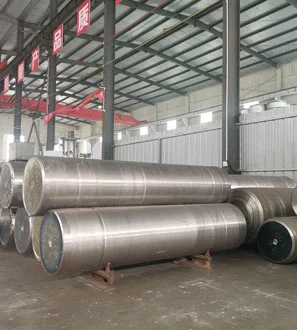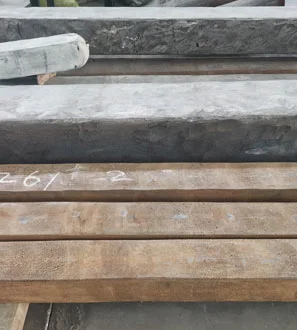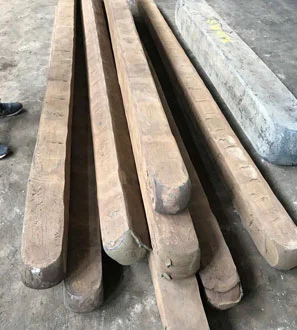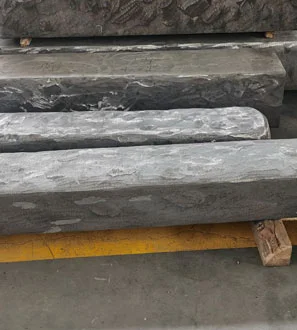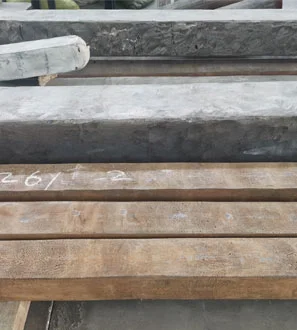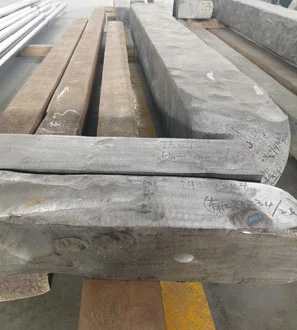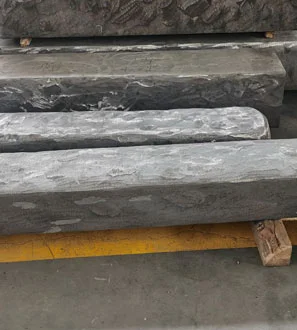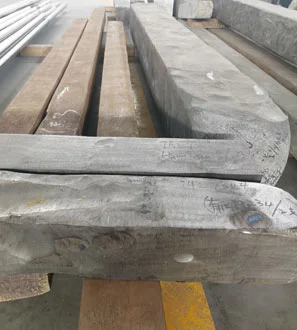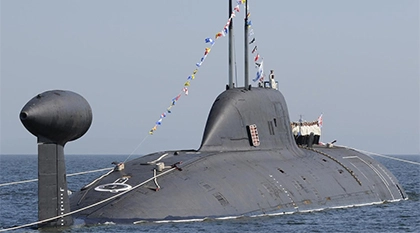Thank you for your
attention on Yesheng !
Titanium Forgings and Gr1 Titanium Billet Uses in Aerospace
Titanium Grade 1 (Gr1) stands out as an unalloyed, low strength titanium variant, distinguished by its low oxygen content and remarkable formability. Widely embraced in aerospace engineering, Gr1 titanium finds its application in diverse areas, showcasing its adaptability and performance.
Aerospace Applications of Gr1 Titanium Billets
Airframes:
Gr1 titanium plays a pivotal role in shaping airframe structures, including fuselage panels, wings, and tailcones. Aerospace titanium alloys exceptional formability allows for intricate geometries, essential for constructing aircraft components.
Heat Exchangers:
The high thermal conductivity and non-reactive nature of Gr1 titanium make it a preferred choice for heat exchangers. It can endure elevated temperatures and corrosive conditions, rendering it suitable for deployment in aircraft engines and other thermal systems.
Desalination Units:
Gr1 titanium's resistance to corrosion and compatibility with seawater make it indispensable in desalination units. It withstands the harsh conditions of desalination processes, contributing to the efficiency and longevity of such systems.
Landing Gear:
Components like struts and brake rotors in landing gear benefit from Gr1 titanium's robust properties, ensuring durability and reliability during landing and takeoff.
Springs:
Gr1 titanium is utilized for forming springs, leveraging its high strength-to-weight ratio and fatigue resistance. This is crucial in applications where flexibility and resilience are paramount.
Flap Tracks:
Gr1 titanium is employed in the creation of flap tracks, which control the movement of aircraft flaps. Its combination of strength and lightweight properties contributes to the efficiency of these components.
Tubes for Pneumatic Systems:
The high strength, corrosion resistance, and lightness of Gr1 titanium make it an ideal choice for forming tubes in pneumatic systems, ensuring reliable and efficient operation.
Fuselage Parts:
Panels and stringers in aircraft fuselage parts are crafted from Gr1 titanium. Its formability and strength contribute to the structural integrity of these components.
Advantages of Gr1 Titanium in Aerospace Applications
High Strength-to-Weight Ratio:
Titanium, including Gr1 Titanium Billet, boasts a remarkable strength-to-weight ratio, making it approximately 45% lighter than steel while maintaining similar strength properties. This characteristic is particularly advantageous in aerospace, where weight reduction is critical for fuel efficiency and overall performance.
Good Corrosion Resistance:
Gr1 titanium exhibits high resistance to corrosion, rendering it well-suited for deployment in harsh environmental conditions commonly encountered in aerospace operations. This corrosion resistance contributes to the longevity and reliability of aerospace components.
Non-Reactive Properties:
The non-reactive nature of forge welding titanium makes it an excellent choice for applications where compatibility with other materials is crucial. This property enhances the durability and functionality of aerospace components.
Gr1 titanium emerges as a versatile and invaluable material in the aerospace industry for custom titanium products. Its unique combination of high strength, corrosion resistance, non-reactivity, and formability positions it as an ideal choice for demanding aerospace environments.
 English
English  日本語
日本語  한국어
한국어  français
français  Deutsch
Deutsch  русский
русский 

